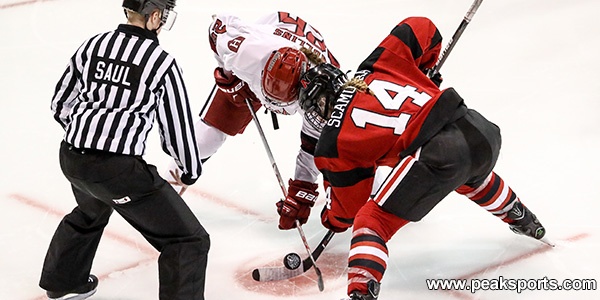
Overcoming Underperformance for Athletes
How well do you perform when your back is up against the wall or when you are playing an elimination game?
Some athletes perform better when there is a sense of urgency or perceived pressure. We often call these athletes clutch in those situations.
However, are all athletes who play better when their backs are against the wall clutch? How about an athlete who underperforms against a lower-ranked opponent but kicks it into gear late in the game to steal the victory? Is that athlete clutch?
For example, if a Top-10 tennis player competes against a player ranked No. 200, generally speaking, the player with the better ranking should be able to win handily. Let’s set the stage, the top-10 player loses the first set 6-0 and finds himself down 4-0 in the second set.
He is not necessarily being outplayed as underperforming due to a lack of effort and focus. Late in the second set, the Top-10 player kicks it into gear and wins the second set 6-4 and the third set 6-2 for the victory.
Is that player clutch because he won or just an athlete who overcame underperformance early in the competition?
Underperformance is caused by taking another opponent lightly or thinking you can magically flip a switch to turn the game around. If you wait to give your complete preparation, effort, and focus, often, it will be too late.
Underperformance can be avoided by adopting a champion mindset to every game or competition. A champion mindset approaches every competition with equal importance, whether you are competing against a top-ranked opponent or a person ranked 200th, a team with a winning record, or a winless team.
In their Stanley Cup playoff series against the Tampa Bay Lightning, the Florida Panthers were down three games and facing elimination from the playoffs…
The Panthers underperformed throughout the series and lost Game 3, 5-1. Despite averaging a league-high 4.11 goals per game during the regular season, the Panthers have scored only three goals through three games in the second round of the playoffs.
Florida coach Andrew Brunette talked about the team’s underperformance throughout the playoff series.
BRUNETTE: “[The Lightning] have more will and more desire than we do. We’re a good team when (our) backs are against the wall, and it looks bleak. Hopefully, we can find some energy and some passion and some joy.”
Having the ability to perform is not enough to perform at your peak. To be on top of your game, you need to approach each game as a playoff game, a championship meet, or a high-level tournament.
How to be a Clutch Performer:
Start by understanding what causes you to underperform in competition. Do you prepare differently depending upon the opponent? Do you feel more pressure to be perfect? Are you worried about disappointing others?
When you understand what leads to underperforming, you can take steps to improve…
Most of the time, athletes underperform due to fear of failure. That means you get too worried about outcomes and what others think about your performance.
Related Sports Psychology Articles
- The How to Having Fun While Performing at Your Best
- Performing Well Under Pressure
- Self-Intimidation for Athletes
*Subscribe to The Sports Psychology Podcast on iTunes
*Subscribe to The Sports Psychology Podcast on Spotify
Download a free sports psychology report to improve your mental game!
Learn more about our one-on-one mental game coaching.

I’m sure you have had great composure at one time in your sports career, maybe when the stakes were not so high and you could control your emotions. However, I want to teach you my system for generating composure every time you step on the field, court, or course even under the most challenging moments!
“The Composed Athlete” audio and workbook program helps you gain a competitive edge by improving your composure in competition. Learn the best ways to let go of mistakes and overcome frustration and dwelling.
